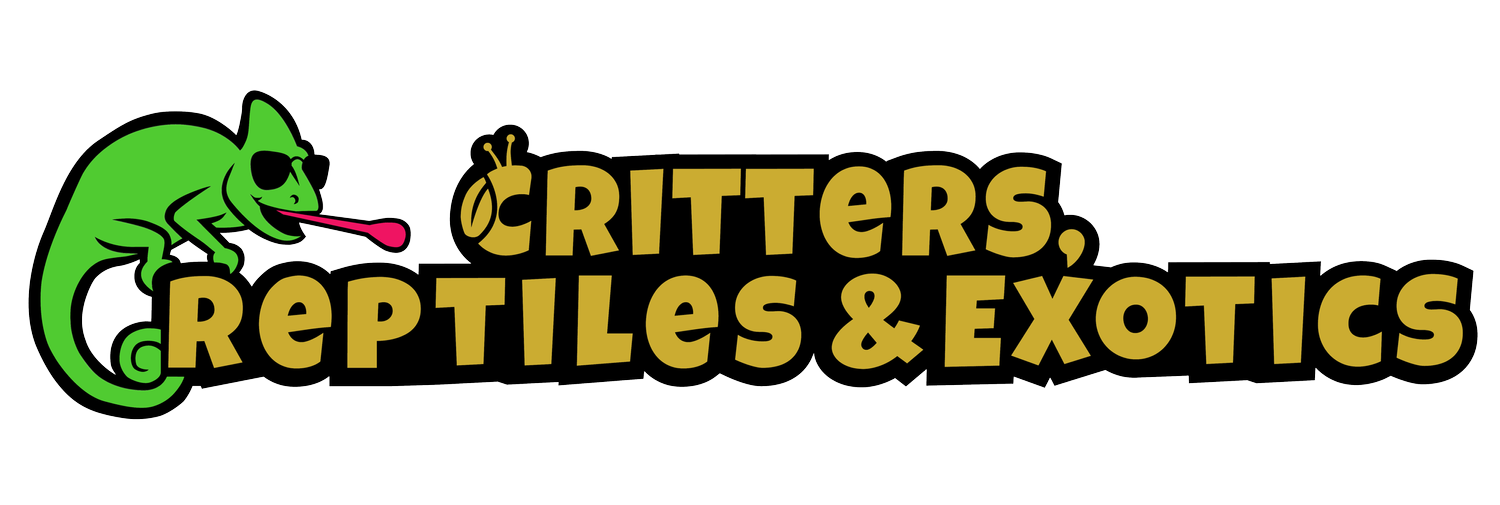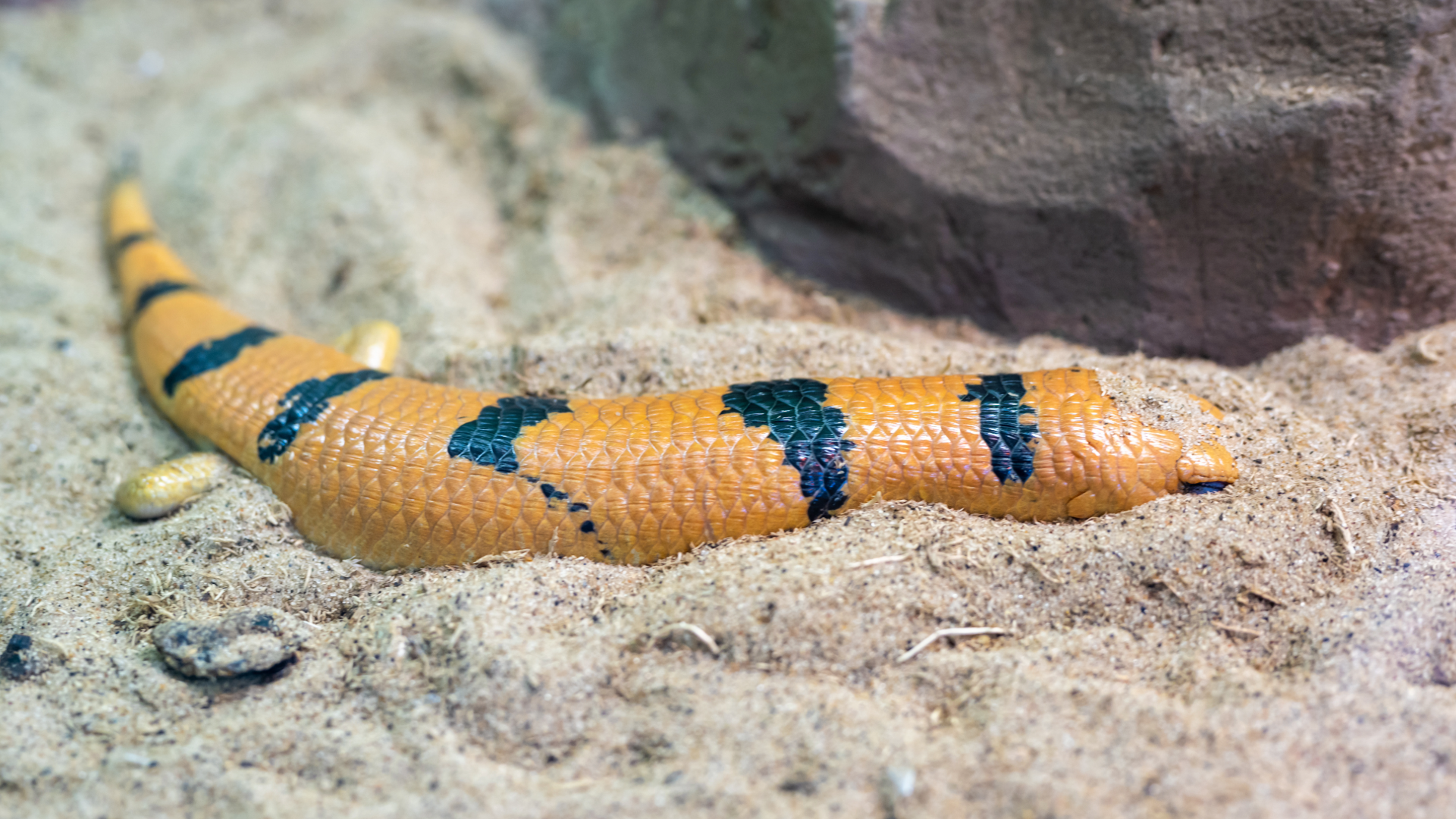Caring for your Peter’s Banded Skink
Peter’s Banded Skink
(scincopus fasciatus)
Basic Information:
Peter’s Banded Skink is a small, striking lizard native to the African continent. It is characterized by a unique pattern of dark bands running across its light-colored body. Typically reaching 5-7 inches, this skink is active during the day and spends much of its time foraging for insects, fruits, and small invertebrates.
Lifespan:
With proper care, the Indonesian Blue-Tongued Skink can live 15-20 years in captivity.
Sexing:
Males are generally slightly larger, and their colors may be more intense, especially during breeding seasons.
Enclosure:
Juveniles: 20-gallon terrarium (24"x12"x12").
Adults: 40-55 gallon terrarium (36"x18"x18").
Provide a large space with plenty of hiding places and branches for climbing.
Substrate:
Use a mix of coconut fiber, organic soil, and sand for easy burrowing. Paper towels are acceptable for maintenance, especially in smaller enclosures.
Lighting & Temperature:
Basking Spot: 95-100°F.
Ambient Temperature: 75-85°F.
UVB Lighting: Use a 5.0 UVB bulb to provide essential UVB for 12-14 hours a day..
Humidity:
Maintain a humidity range of 40-50% with occasional, light misting to promote hydration and ease shedding.
Food:
They are insectivores and will eat a variety of small insects like crickets, mealworms, and small roaches. Some plant and fruit matter can also be offered occasionally.
Water:
Always provide fresh water in a shallow dish, ensuring it’s replaced daily.
Supplementation:
Calcium with D3: Dust food 2-3 times weekly.
Calcium without D3: Use on alternating days if adequate UVB lighting is provided.
Multivitamins: Offer once weekly to support overall health
This skink’s manageable size, calm temperament, and relatively low-maintenance care make it a wonderful pet for reptile lovers. With proper attention to its diet, lighting, and environment, the Peter’s Banded Skink can be a delightful and long-lived companion.
Are Peter’s Banded Skinks for Sale Near Me?
Peter’s Banded Skinks are one of those hidden gems — hardy, easygoing, and full of personality once they settle in. Whether you’re new to reptiles or looking to add something a little different to your collection, they’re a fantastic choice. Are you in Baltimore County or the surrounding area? It’s an easy trip to Frederick, MD to visit Critters, Reptiles & Exotics and see if we have any of these charming skinks in stock. We’ll walk you through everything from enclosure tips to feeding routines.\ Remember, There’s always a new adventure waiting at Critters, Reptiles & Exotics!


